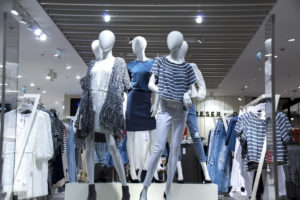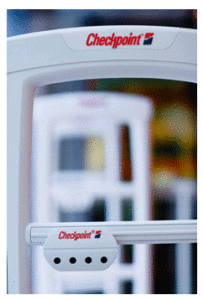 As a retail business, shoplifting, employee theft and lawsuits come hand in hand. Preventing shoplifting and employee theft are somewhat under control by you or the management of the store, while lawsuits are-although preventable-not under strict control.
As a retail business, shoplifting, employee theft and lawsuits come hand in hand. Preventing shoplifting and employee theft are somewhat under control by you or the management of the store, while lawsuits are-although preventable-not under strict control.
A shoplifting incident can become something of a life or death situation very quickly. Here, the rules and regulations set by the owner or management of the store and that employees must abide by become too important to ignore.
As an owner or manager of a store, safety must be your number one priority. Safety not only for your employees, but for your customers as well. An employee chasing after a shoplifter when they have left the premises is dangerous and should never be encouraged. Lawsuits and deaths lost due to chasing after a shoplifter have been numerous. The resulting death of a shoplifter have landed people in jail and in the courthouse. Safety should be your number one priority at all times.
Family of slain Chicago area Uber driver sues Walmart
CHICAGO — Relatives of a suburban Chicago Uber driver who was fatally attacked while on the job has sued Walmart, where authorities say the driver’s teenage attacker stole weapons just before the killing.
The family of Grant Nelson filed a wrongful death lawsuit Monday in Cook County against the retailer and two other companies overseeing its security.
Authorities have charged 16-year-old Eliza Wasni in Nelson’s death, saying she stole a machete and knife from Walmart early on May 30 and then got into Nelson’s car and brutally attacked him.
The lawsuit claims two Walmart employees or contractors stood near the door as Wasni exited. The lawsuit alleges they were negligent because they failed to stop the teen and ask her any questions.
Guard at CVS Pharmacy chases down, kills shoplifter in Dallas, police say
A loss-prevention staffer at a CVS Pharmacy store shot and killed a suspected shoplifter after chasing down his getaway car Sunday afternoon in southeast Dallas, police say.
Police arrested 36-year-old Julio Ruvalcaba Monday on a murder charge.
Officers were dispatched to the shooting about 3 p.m. Sunday and found 31-year-old Christopher Geddes lying on the curb on the eastbound C.F. Hawn Freeway service road and Elam Road, police said.
He was taken to a hospital, where he died from his injuries.
Surveillance video showed Geddes shoplifting from the CVS on South Buckner Boulevard and running to a Toyota Camry in the parking lot, according to an arrest warrant affidavit.
Footage from several minutes later shows another person leaving the store and getting into a Chevy Camaro parked outside. CVS employees identified that person as Ruvalcaba, a loss-prevention staffer tasked with reducing shoplifting.

 If you believe that you can outsell your cash or inventory losses due to theft, you probably won’t be in business for long. Or if you do survive, you are no way living up to the margins you deserve. In my 35+ years of loss prevention particularly helping medium to small retailers, I have heard this more times than I can believe.
If you believe that you can outsell your cash or inventory losses due to theft, you probably won’t be in business for long. Or if you do survive, you are no way living up to the margins you deserve. In my 35+ years of loss prevention particularly helping medium to small retailers, I have heard this more times than I can believe.  How many of you have done IT? You know the IT I’m talking about. You looked at an application, interviewed the candidate, had a bit of an unsettled feeling about him or her but hired them anyway. IT may be a few days, a few weeks or a few months later but IT becomes a reality, buyer’s remorse. You hired someone who turns out to be a dud. It may be they are calling out of work on a regular basis or perhaps they aren’t following directions on tasks you are assigning them. It may be that you think they are stealing money or merchandise from you. Whatever the problem you just wish you hadn’t hired this person. It is frustrating to make those types of employment decisions, but don’t feel like your small retail store is all alone because you have to make these hiring choices yourself. It even happens to big companies that have Human Resources departments dedicated to trying to hire and retain the best employees.
How many of you have done IT? You know the IT I’m talking about. You looked at an application, interviewed the candidate, had a bit of an unsettled feeling about him or her but hired them anyway. IT may be a few days, a few weeks or a few months later but IT becomes a reality, buyer’s remorse. You hired someone who turns out to be a dud. It may be they are calling out of work on a regular basis or perhaps they aren’t following directions on tasks you are assigning them. It may be that you think they are stealing money or merchandise from you. Whatever the problem you just wish you hadn’t hired this person. It is frustrating to make those types of employment decisions, but don’t feel like your small retail store is all alone because you have to make these hiring choices yourself. It even happens to big companies that have Human Resources departments dedicated to trying to hire and retain the best employees. We make decisions each and every day that have consequences. We set our alarm clocks and when they go off we choose to do the right thing and get up so we have time to prepare for work properly, showering, grabbing a bite to eat, sipping a cup of coffee or two and saying good-byes to our family. It is possible we may choose to do the wrong thing, hit the snooze button and get that 5 extra minutes of sleep but there is a cost associated with it. That five minutes easily turns to fifteen minutes, showers go by the wayside, we grab the first thing we can find in the closet (or hamper), our socks wind up not matching and if we are fortunate we grab a cup of coffee in a travel cup and hope it doesn’t spill on us as we jog/stumble to the car.
We make decisions each and every day that have consequences. We set our alarm clocks and when they go off we choose to do the right thing and get up so we have time to prepare for work properly, showering, grabbing a bite to eat, sipping a cup of coffee or two and saying good-byes to our family. It is possible we may choose to do the wrong thing, hit the snooze button and get that 5 extra minutes of sleep but there is a cost associated with it. That five minutes easily turns to fifteen minutes, showers go by the wayside, we grab the first thing we can find in the closet (or hamper), our socks wind up not matching and if we are fortunate we grab a cup of coffee in a travel cup and hope it doesn’t spill on us as we jog/stumble to the car.  I remember the days when I needed to fill a position on my Loss Prevention Tea
I remember the days when I needed to fill a position on my Loss Prevention Tea
 As many of you know Alpha High Theft Solutions was acquired by Checkpoint Systems many years ago. Checkpoint has encouraged Alpha’s brand growth and innovation. Alpha has produced the best high theft solutions, hands down in the industry. Innovations like Spider Wrap, Keepers, Bottle Locks, Cable Locks, Shark Tags, specialized hard tags literally protect billions of retail products worldwide.
As many of you know Alpha High Theft Solutions was acquired by Checkpoint Systems many years ago. Checkpoint has encouraged Alpha’s brand growth and innovation. Alpha has produced the best high theft solutions, hands down in the industry. Innovations like Spider Wrap, Keepers, Bottle Locks, Cable Locks, Shark Tags, specialized hard tags literally protect billions of retail products worldwide. I don’t know how many times I have heard it, but I have heard it said that shoplifting is not a crime that is premeditated. I have heard and read the arguments that dismiss the seriousness of the crime and portray the criminals as opportunists acting on the spur of the moment. Implicit in the argument is the minimizing of the extent of Organized Retail Crime rings as well as the willingness of shoplifters to steal from your customers. I have even had people who think along these lines voice their disapproval when I had shoplifters I had apprehended and was walking to my security office. I recall one occasion when I apprehended three young men, about 14 years of age and was by myself. I had them stand with their faces against the wall as I had to get my keys out to unlock the door to my office. Two men were sitting outside my office and one muttered under his breath that I was being a butt, only he used a more colorful adjective. I looked at him and told him to mind his own business. The point is that there are people more sympathetic to the criminals than retailers and see shoplifting as a minor infraction at worst and mischievous behavior at best. The attitude among those that hold to those beliefs might change if they realized that these shoplifters aren’t necessarily choosy about who they steal from. They also don’t consider the safety risks posed by the careless acts of these criminals.
I don’t know how many times I have heard it, but I have heard it said that shoplifting is not a crime that is premeditated. I have heard and read the arguments that dismiss the seriousness of the crime and portray the criminals as opportunists acting on the spur of the moment. Implicit in the argument is the minimizing of the extent of Organized Retail Crime rings as well as the willingness of shoplifters to steal from your customers. I have even had people who think along these lines voice their disapproval when I had shoplifters I had apprehended and was walking to my security office. I recall one occasion when I apprehended three young men, about 14 years of age and was by myself. I had them stand with their faces against the wall as I had to get my keys out to unlock the door to my office. Two men were sitting outside my office and one muttered under his breath that I was being a butt, only he used a more colorful adjective. I looked at him and told him to mind his own business. The point is that there are people more sympathetic to the criminals than retailers and see shoplifting as a minor infraction at worst and mischievous behavior at best. The attitude among those that hold to those beliefs might change if they realized that these shoplifters aren’t necessarily choosy about who they steal from. They also don’t consider the safety risks posed by the careless acts of these criminals.